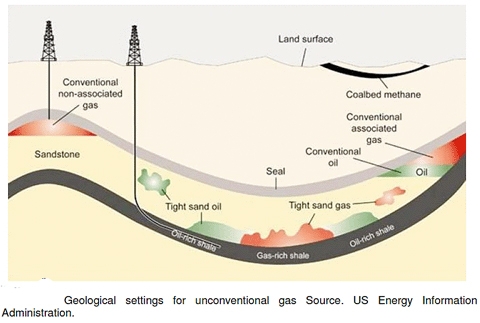In a speech to the Royal Society, Edward Davey outlined the case for the safe and responsible exploration of shale gas in the UK, in line with the UK’s climate change targets.
According to the Department of Energy and Climate Change (DECC) Davey was responding to the findings of a new report which estimates that the carbon footprint of UK produced shale gas would likely be significantly less than coal and also lower than imported Liquefied Natural Gas (LNG).
The report by DECC chief scientific advisor Prof David Mackay FRS and Dr Timothy Stone, senior advisor to the secretary of state, assesses the potential greenhouse gas (GHG) emissions from the production of shale gas in the UK and the compatibility of such emissions with the UK’s climate change targets.
With the right safeguards in place, the report concludes, the net effect on GHG emissions from shale gas production in the UK will be relatively small. In order to ensure that global cumulative GHG emissions to the atmosphere do not increase, worldwide shale gas production needs to be accompanied by additional international emissions-reduction efforts, including a global deal on emissions reductions and additional effort to develop low-carbon technologies such as Carbon Capture and Storage (CCS).
Speaking yesterday at the Royal Society, Secretary of Davey said, ‘Gas, as the cleanest fossil fuel, is part of the answer to climate change, as a bridge in our transition to a green future, especially in our move away from coal.
‘We have to face it: North Sea gas production is falling and we are become increasingly reliant on gas imports. So UK shale gas could increase our energy security by cutting those imports.’
He added in a statement that the Mackay/Stone report shows that the continued use of gas is consistent with the UK’s carbon budgets over the twenty years.
‘If shale gas production does reach significant levels we will need to make extra efforts in other areas,’ he said. ‘Because by on-shoring production we will be on-shoring the emissions as well. And, as this report recommends, we will still need to put in place a range of techniques to reduce emissions.
‘Let me be clear – here at home we must not and will not allow shale gas production to compromise our focus on boosting renewables, nuclear and other low carbon technologies. UK shale gas production must not be at the expense of our wider environmental aims – indeed, if done properly, it will support them. I am determined to make that happen.’
Shale gas is an ‘unconventional’ gas that requires hydraulic fracturing, or fracking, of source rocks to extract it. Industry is exploring the amount of shale gas that might be safely and economically extracted in the UK, but as yet, no companies have permission to exploit shale gas resources through fracking.
One study of the potential shale resources available has been conducted by the British Geological Survey for the Bowland Basin area in the North of England, which suggests a mid-point estimate of 1,300 trillion cubic feet.
Dr Tim Stone said, ‘Shale gas could be a very valuable asset for the UK both in terms of energy and wider petrochemical uses. It is important that in exploiting this asset we do so responsibly and build public trust.’






Swiss geoengineering start-up targets methane removal
No mention whatsoever about the effect of increased methane levels/iron chloride in the ocean on the pH and chemical properties of the ocean - are we...